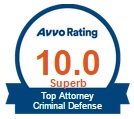Forgery charges often come up at some of the most difficult times in people’s lives. Check forgery is one of the most common offenses and is often a last resort for people dealing with financial troubles. Such a conviction may not only carry consequences such as jail time and hefty fines, but can also affect you for the rest of your life. People with a Forgery conviction often have trouble finding employment, entering into positions of authority and finding housing. Whether you have been wrongly accused or just made a mistake in a desperate hour, it is important to talk to a criminal defense attorney right away.
If you are facing Forgery charges, it is important to know how the system works, to protect your rights, to know what your options are, and the pros and cons of each and every choice. At Ascheman Law, that’s what we do.
- We are here to help you understand the system. We walk you through and explain how the system works and what happens each step of the way.
- We protect your rights. Our job is to make sure that your rights are protected every step of the way; to ensure that questionable and falsified evidence is challenged; to force the State to do things by the book.
- We can help you understand your options and the ramifications that each option brings with it.
We offer free consultations so that you don’t have to fight alone. The best thing you can do is take the time to sit down with a trained criminal defense attorney and talk about your case.
What is Forgery?
If the state is accusing you of Forgery, it is saying that you falsely and fraudulently made or altered a document. A forgery conviction can be a misdemeanor, gross misdemeanor or felony, depending on the severity of the criminal conduct. Typically, the level of the offense depends heavily on the amount of money involved in the forgery. Forgery in general is a lesser offense than Aggravated Forgery or Check Forgery.
- A person may be guilty of Forgery if they do any of the following with the intent to injure or defraud:
- Uses an identification that they know to be false;
- Destroys a writing to prevent it from being produced at a trial or a hearing;
- Destroys or falsifies any record or document relating to a private business;
- Uses a label of another craftsperson without their consent; or
- Falsely makes or alters a membership card.
Forgery carries a maximum sentence of three years imprisonment and/or a fine of no more than $5,000.
What is Aggravated Forgery?
A person may be guilty of Aggravated Forgery if they falsely make or alter a writing by using a fictitious name. Aggravated Forgery is mainly different than Forgery because of the documents involved in the Forgery. Aggravated Forgery may be charged if the situation involves:
- An official seal;
- A seal of a corporation;
- A public record;
- The records or account of a public office;
- The records of a bank; or
- A writing normally relied upon as evidence of debt or property rights (other than a check or credit card).
Aggravated Forgery carries a maximum sentence of 10 years imprisonment and/or a fine of no more than $20,000.
What is Check Forgery?
Check Forgery is the most common type of Forgery as it is often the kind people fall to in hard situations. Many people don’t know that writing a bad check can make them subject to both civil and criminal penalties. A person may be guilty of Check Forgery if he or she intends to defraud another by doing one of two things:
- Falsely making or altering a check with a fictitious name; or
- Falsely endorsing a check with a name that was not their own.
- If the forged checks equate to $250, but not more than $2,500, then the Check Forgery conviction carries a maximum sentence of five years imprisonment and/or a fine of no more than $10,000.
- If the forged checks equate to $2,500 or more, then the Check Forgery conviction carries a maximum sentence of 10 years imprisonment and/or a fine of no more than $20,000.
- If the forged checks equate to more than $35,000, then the Check Forgery conviction carries a maximum sentence of 20 years imprisonment and/or a fine of no more than $100,000.
What to do:
If you or someone you love has been charged with Forgery, it is important to call a criminal defense attorney right away. A Forgery conviction can have a negative effect on you for the rest of your life so it is important to have an attorney that will fight for your rights. Call us today at 612-217-0077 to set up a free consultation.
- Appeals
- Assault
- Boating While Intoxicated
- Burglary
- Child Abduction
- Child Abuse and Neglect
- Child Sexual Abuse
- Controlled Substances
- Controlled Substances
- Criminal Defense
- Criminal Forfeiture
- Criminal Sexual Conduct
- CVO & CVH
- Domestic Abuse
- Drivers License Suspension
- Driving While Intoxicated
- Embezzlement
- Expungement
- False Imprisonment
- Felony Charges
- Forgery
- Fraud
- Gross Misdemeanor
- Hit and Run
- Internet Crimes
- Juvenile Cases
- Kidnapping
- Minor Consumption
- Misdemeanors
- Murder Charges
- No Contact Orders
- Parole & Probation
- Shoplifting
- Stalking
- Theft
- Traffic Tickets
- Trial Practice
- Weapon Charges
- White Collar Crimes
Contact Us
Landon Ascheman
500 Laurel Avenue
St. Paul, Minnesota 55102
MAP IT
Phone: 612-217-0077
Fax: 651-344-0700
Landon@AschemanLaw.com



